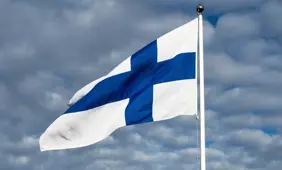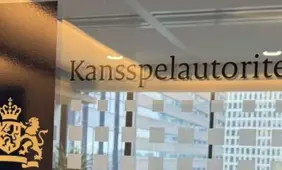Netherlands Sees Record Numbers in Gambling Self-Exclusion
The Netherlands has witnessed a substantial surge in individuals voluntarily opting for a gambling ban, with the figure now exceeding 100,000, according to the country's gaming regulator.

As reported by Dutch newspaper Trouw, the sign-ups on the Cruks register, the country’s self-exclusion system and database, surpassed the 100,000 milestone last week. Created in 2021, Cruks allows individuals to voluntarily exclude themselves from participating in various forms of gambling, online or land-based.
Players can sign up for Cruks via the online portal using their DigiD (Dutch ID system) or through a paper form. They'll need to provide their public service number, surname, and date of birth, or official documents like a passport if they're not a Dutch citizen. Upon registering, they will be blocked from accessing any gaming services for a minimum period of six months. While this exclusion can be extended, it can not be reversed until the initial period has passed.
When attempting to access an online or land-based casino in the Netherlands for the first time, individuals are required to enter their Burger Service Nummer (BSN). This generates a Cruks code, which checks their registration status. If they're registered in Cruks, they'll be denied registration or entry to the casino.
According to the gambling authority, weekly registrations for Cruks are averaging between 300 and 500, with about half of the new registrants being under 32 and the majority selecting the six-month minimum exclusion period.
More Responsible Gambling
 Responsible Gambling
Responsible Gambling
Finland Publishes 2-4-2 Gambling Harm Framework Before 2027 Market Opening
Feb 18, 2026 Responsible Gambling
Responsible Gambling
FanDuel to End Credit Card Funding on March 2 as Part of Safer-Play Push
Feb 12, 2026A Double-Edged Sword
While increasing Cruks numbers highlights the prevalence of problem gambling, it also reveals that more individuals are recognizing the need for help with gaming addiction and are accessing tools designed to help them overcome these challenges.
However, problem gambling is not the only hurdle the Netherlands needs to overcome, with black market gambling also causing issues for licensed operators. The recent measures introduced by Kansspelautoriteit (KSA), the country’s gambling regulator, to promote safer gambling, especially the deposit limits, have led to dwindling gaming revenues for licensed operators and a significant rise in black market activity.
The new rule caps monthly deposit limits at €300 for players aged 18-24 and €700 per month for players over 24. Four months into its implementation, the percentage of players depositing above their limits has plummeted from 9.7% to 3.8% and from 12% to 2.8% among young adults.
The average loss per player account fell to €83 from €117, while licensed operators' GGR saw a 10% decline.
RELATED TOPICS: Responsible Gambling
Most Read
Must Read
 Interviews
Interviews
Exclusive Interview: Levon Nikoghosyan Shares AffPapa Winning Formula for Successful iGaming Events
Dec 03, 2025 Interviews
Interviews






Review this New Post
Leave a Comment
User Comments
Comments for Netherlands Sees Record Numbers in Gambling Self-Exclusion